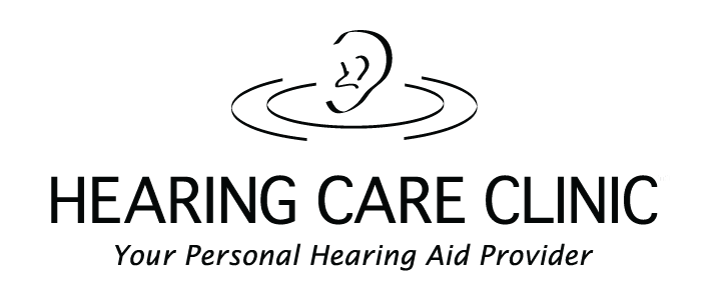The top factor for success with hearing aids
How understanding your hearing loss contributes to better success with hearing aids
Far too often, people get hearing aids but end up rarely using them. The hearing aids don’t provide the benefits that were expected, so the devices are only used in some situations or completely forgotten.
At Hearing Care Clinic, our goal is to keep hearing aids out of drawers by ensuring they are as helpful as possible.
The top factor to success is understanding your hearing loss and using that information to select the best devices and treatment plan. When the hearing aids match the hearing challenges you experience, they won’t be a burden to use but instead essential to your daily life.
This is how Hearing Care Clinic approaches hearing care. And it is why we help people have better success with their hearing aids.
Understanding hearing loss
What is hearing loss
Hearing loss is experienced when an individual is not able to hear sounds as well as people with “normal” hearing. Around 54% of Canadians over the age of 40 experience hearing loss to some degree.
Although it is common, hearing loss isn’t as simple as “you have it or you don’t,” and everyone experiences it differently. Some people may struggle to hear lower-pitched sounds, while others may not be able to hear sounds at a higher pitch.
You may have noticed you need to watch TV at a higher volume, or you may find it difficult to follow conversations in certain environments or when certain people are speaking. Some challenges are more prevalent than others, but there isn’t a uniform way that hearing loss is experienced.
Types of hearing loss
Hearing loss can affect one ear or both ears. It can range from mild to profound, often with different pitches experiencing varying degrees of loss.
There are three main types of hearing loss that describe the place in the ear that is damaged or affected:
- Conductive hearing loss: In the outer ear or middle ear
- Sensorineural hearing loss: In the inner ear or related to the connections between the ears and brain
- Combination: A combination of both types of hearing loss
It is our goal to understand the location of the hearing loss during our hearing test. This will help understand the type of hearing loss and the best options for care.
What causes hearing loss
Many different factors can contribute to hearing loss. During your hearing test, we will discuss your lifestyle, health and noise history. This information will provide clues into the causes and nature of your hearing loss.
- Medical history: Your overall health plays a major role in your hearing health. Ear infections can cause damage and lead to hearing loss. Certain diseases, such as meningitis or chickenpox, can cause diminished hearing health, and other medical conditions such as diabetes and sleep apnea have been correlated with hearing loss.
- Medications: Regular use of some medications (called ototoxic medications, where “oto” refers to ears) can contribute to damage to the ears.
- Lifestyle: A poor diet or an inactive lifestyle can also have a negative impact on your hearing health.
- Chronic noise: Your personal noise history is another key factor. Loud noises can cause irreparable damage to the nerve cells of your inner ear, which are essential to normal hearing. Attending noisy events, such as concerts or sporting events, can damage your hearing
- Extreme noise: Even a one-time exposure to an intense sound, like a gunshot or a firecracker, can cause noise trauma that results in permanent hearing loss.
- Work: Occupations that require consistent exposure to loud environments or loud noises from things like power tools or sirens can diminish your hearing over time.
- Hobbies: Damage can also occur with long-term noise exposure from recreational activities. Participating in motorsports and practicing hobbies that use power tools can lead to hearing loss.
This list isn’t exhaustive – there are many factors that can contribute to hearing loss and a lot of different ways that hearing loss can be experienced. This is why it is crucial for you to understand your hearing loss before deciding on a solution.
How to understand your hearing loss
Get a hearing test
A hearing test is critical in figuring out if you have a hearing loss and what the causes of your hearing issues could be. We also try to connect the impacts of your hearing loss with the challenges you face in your daily life.
An untreated hearing impairment can limit learning potential, cause social anxiety and isolation, and can even lead to dementia. Using a hearing aid in the early stages of hearing loss can reduce these risks.
Review your results with a hearing care professional
Following your test, our Hearing Care Clinic professionals will provide a complete hearing aid consultation to review your results and discuss the specific hearing challenges you face. We will make recommendations for your treatment based on your hearing loss that will have the best chance of success while fitting in with your lifestyle.
An ongoing journey to better understand your hearing
Once treatment is selected, we provide ongoing care and maintenance to monitor your progress and help you further understand your hearing loss. The more we learn about your hearing, the more we can optimize the performance of your hearing aids.
You are, ultimately, in charge of your hearing loss treatment, and understanding your hearing loss will give you the information and tools you need to be proactive about your hearing health.
Start understanding your hearing by booking a hearing test. If you already have hearing aids but they spend more time in a drawer, schedule a hearing aid check-up to see if the devices are the best solution for your hearing loss.
Book an appointment with the Hearing Care Clinic today.










